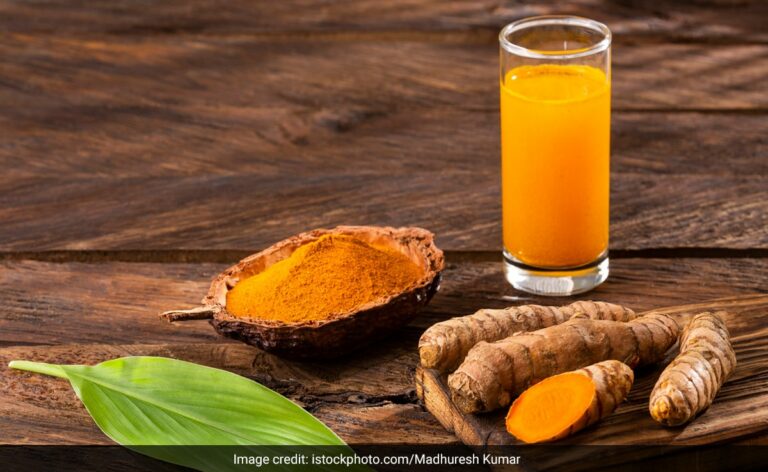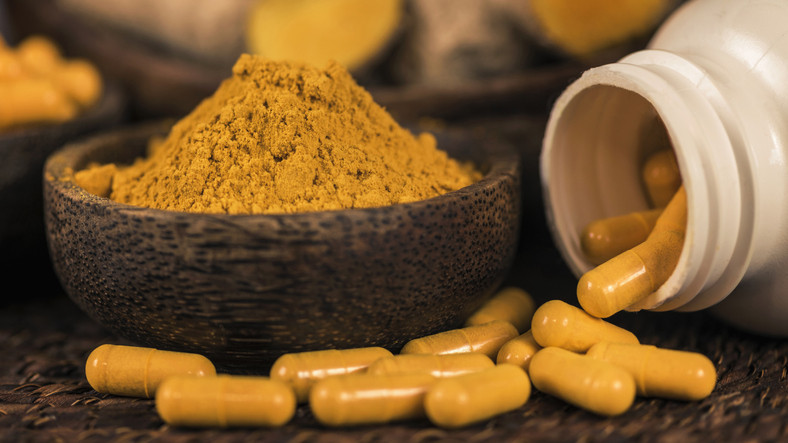Curcumin is a compound found in turmeric, a spice commonly used in Indian cuisine. It is known for its vibrant yellow color and potential health benefits. Here are some reasons why people consume curcumin and the potential benefits associated with it:
- Anti-inflammatory properties: Curcumin has strong anti-inflammatory properties, which may help reduce inflammation in the body. Chronic inflammation is believed to contribute to various health conditions, including heart disease, cancer, and arthritis.
- Antioxidant activity: Curcumin exhibits antioxidant activity, which means it can neutralize harmful free radicals in the body. Free radicals can cause oxidative stress and damage cells, leading to various diseases and premature aging.
- Pain relief: Due to its anti-inflammatory effects, curcumin may help alleviate pain, particularly in conditions like arthritis and joint inflammation. It may also be useful in managing muscle soreness and post-exercise recovery.
- Potential cancer-fighting properties: Some studies suggest that curcumin may have anticancer properties. It may help inhibit the growth of cancer cells, prevent tumor formation, and even enhance the effectiveness of chemotherapy.
- Digestive health: Curcumin is believed to support digestive health by stimulating the production of bile, which aids in the digestion and absorption of fats. It may also help reduce symptoms of digestive disorders such as bloating and gas.
- Brain health: Curcumin has shown promise in promoting brain health. It may help improve cognitive function, protect against neurodegenerative diseases like Alzheimer’s, and enhance mood.
- Heart health: Curcumin may have cardiovascular benefits by improving blood vessel function, reducing cholesterol levels, and inhibiting blood clot formation. These effects may contribute to a lower risk of heart disease.
- Potential anti-diabetic effects: Some studies suggest that curcumin may help regulate blood sugar levels and improve insulin sensitivity, which can be beneficial for individuals with diabetes or those at risk of developing the condition.
Research suggests that curcumin may help regulate blood sugar levels

Curcumin is a naturally occurring compound found in the spice turmeric. It is known for its vibrant yellow colour and has been used for centuries in traditional medicine practices. In recent years, curcumin has gained significant attention in the scientific community due to its potential health benefits. Below are some of these benefits.
8 Benefits of adding curcumin to your diet:
1. Powerful antioxidant effects
Curcumin possesses strong antioxidant properties, which means it helps protect the body from harmful free radicals that can cause oxidative damage. Oxidative stress has been linked to various chronic diseases such as cancer, heart disease, and Alzheimer’s. The antioxidant effects of curcumin can help neutralise free radicals and reduce the risk of these diseases.
2. Anti-inflammatory properties
Chronic inflammation is a major contributor to many diseases, including arthritis, metabolic syndrome, and certain types of cancer. Curcumin has been found to have potent anti-inflammatory effects by inhibiting various molecular pathways involved in inflammation.
3. Potential cancer-fighting abilities
Studies have shown that curcumin may play a role in preventing and treating certain types of cancer. It can inhibit the growth and spread of cancer cells and even induce programmed cell death (apoptosis) in cancer cells. Additionally, curcumin may help reduce the side effects of chemotherapy and enhance its effectiveness, making it a promising adjunct therapy in cancer treatment.
4. Enhanced brain function
Curcumin has been found to cross the blood-brain barrier, allowing it to exert various beneficial effects on brain health. It can increase levels of brain-derived neurotrophic factor (BDNF), a protein involved in the growth and survival of brain cells. Low BDNF levels have been linked to conditions like depression and Alzheimer’s disease.
5. Improved joint health
Curcumin’s anti-inflammatory properties have also been shown to benefit joint health. It can help reduce pain, stiffness, and swelling associated with conditions such as arthritis. Curcumin has been found to inhibit inflammatory enzymes and cytokines involved in joint inflammation, providing relief to individuals suffering from joint-related ailments.
6. Potential heart-protective effects
Heart disease is the leading cause of death worldwide, and curcumin may help reduce its risk factors. It can improve the function of the endothelium, the lining of blood vessels, which plays a crucial role in regulating blood pressure and preventing clot formation. Moreover, curcumin has been shown to lower LDL (bad) cholesterol levels and reduce oxidative stress, which are both important contributors to heart disease.
7. Balanced blood sugar levels
Research suggests that curcumin may help regulate blood sugar levels by improving insulin sensitivity and reducing insulin resistance. By enhancing the uptake of glucose into cells and reducing liver glucose production, curcumin may help prevent and manage conditions like type 2 diabetes. However, further large-scale studies are needed to confirm these findings.
8. Potential anti-depressant effects
Some studies have explored curcumin’s potential as an alternative treatment for depression. It has been suggested that curcumin’s ability to increase BDNF levels, reduce inflammation, and modulate neurotransmitters like serotonin and dopamine may contribute to its antidepressant effects. Although promising, more research is required to determine the optimal dosage and efficacy of curcumin in treating depression.
While curcumin shows promise as a natural remedy, it’s important to note that further research is needed to fully understand its mechanisms and establish optimal dosages for specific conditions.




COMMENTS